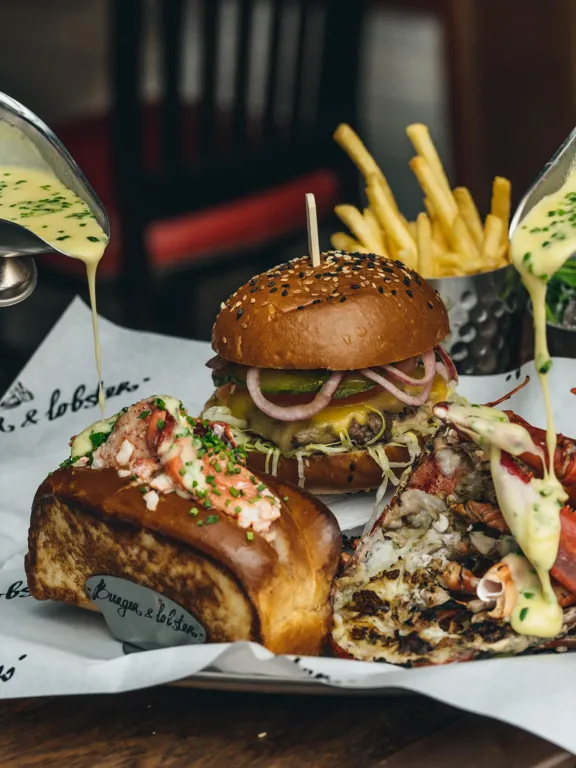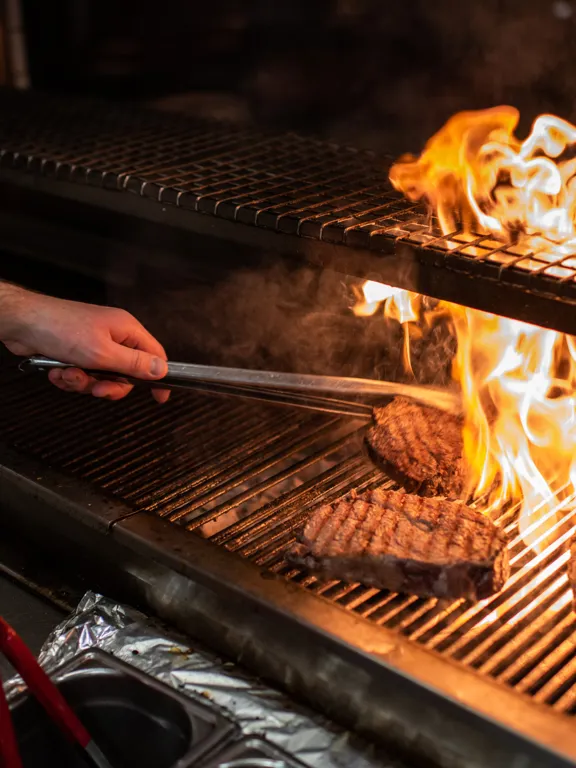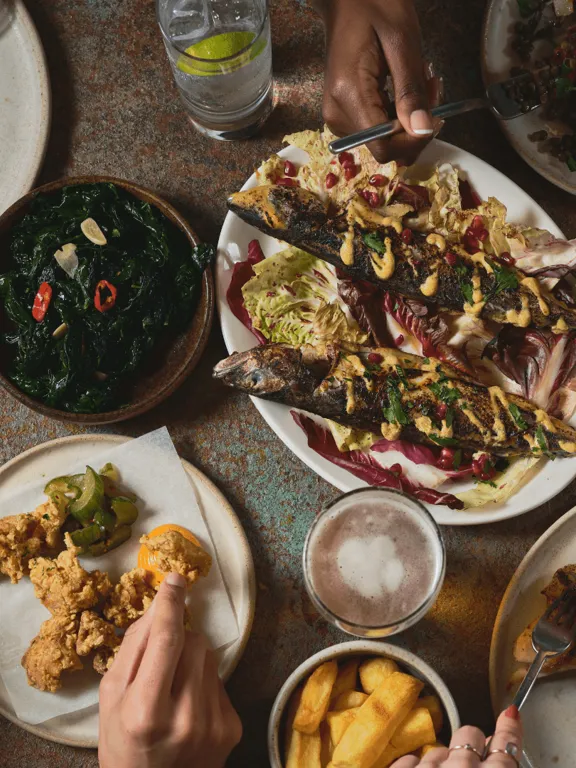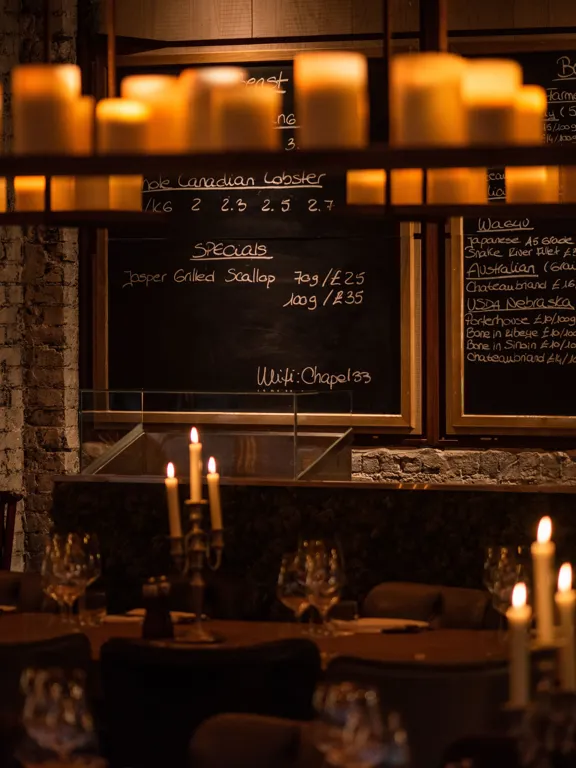SEO involves various optimisation strategies that look at various aspects of a website to improve its ranking on search engine results pages (SERPs), particularly on search engines like Google. SEO works by strategically incorporating relevant keywords, creating high-quality content, optimising website structure such as the navigation and internal links, and obtaining authoritative backlinks so that search engines have more trust and value in your website. A key aim of SEO is to make a website more appealing to both users and search engine algorithms to ensure a website appears high up in results pages and gains more organic traffic.
For the restaurant sector, restaurant SEO can play a pivotal role in boosting digital performance and online visibility. By implementing effective SEO strategies, restaurants can ensure that their websites appear higher in search results when potential customers search for relevant keywords, such as "best Italian restaurant near me" or "local sushi places." This increased visibility leads to higher organic traffic to the restaurant's website, and therefore more direct bookings.
Increased website traffic
A well-executed restaurant SEO strategy is instrumental in boosting website traffic and increasing SERP visibility, ultimately leading to more organic traffic and customers for restaurants. By implementing effective SEO practices, restaurants can improve their online presence and connect with a larger audience, resulting in more direct bookings.
KEYWORD OPTIMISATION: The heart of a restaurant's SEO strategy lies in keyword optimisation. By identifying and incorporating relevant keywords that potential customers use when searching for restaurants similar to yours, a website can rank higher on SERPs. When the website appears among the top results, it’s more likely to gain greater visibility and attract more clicks, increasing website traffic. For instance, if a restaurant specialises in Italian cuisine, optimising for keywords like "best Italian restaurant" or "authentic Italian dishes" can help the restaurant to appear prominently on search results related to Italian dining and gather the interest of people searching for those restaurants.
HIGH QUALITY CONTENT: Another way to increase website traffic is by creating high-quality, informative, and engaging content is another crucial aspect of SEO. Valuable content not only addresses users' queries but also establishes the restaurant's authority and credibility, which in turn means search engines look at it more favourably and with more trust. Regular blog posts, articles about local food trends, chef interviews and cooking tips can draw visitors to the website and keep them engaged. This content not only encourages visitors to spend more time on the site but also improves the chances of them sharing the content, thus attracting more organic traffic.
BACKLINKS: Backlinks, or links from other reputable websites to the restaurant's site, are essential for SEO success. Search engines view backlinks as a vote of confidence in the website's content. As a result, websites with authoritative backlinks tend to rank higher on SERPs.
Engaging in collaborations, guest posting, or reaching out to local food bloggers and influencers can help build a network of quality backlinks, which, in turn, can boost a restaurant's online visibility and drive more organic traffic. The positive cycle created by enhanced SERP visibility and increased website traffic leads to improved organic traffic and thus, more customers.
As more users discover the restaurant through their online searches, visit the website, and find valuable content, they are more likely to make a direct booking, place orders or enquiries, or physically visit the restaurant. This then leads to more positive experiences, more online reviews and recommendations through word-of-mouth.
Relevant ranking content
As touched on above, keywords and optimised content play a crucial role in boosting digital visibility. Crafting content that not only aligns with targeted keywords but uses them organically and optimally allows a restaurant to not only rank higher on search engine results but also connect with the intended audience more effectively.
Simply put, keywords act as signposts that guide search engines and users to relevant content. Such as how if you were to search “Chinese food Birmingham”, relevant blog articles that use that specific keyword or phrase appear. When a restaurant strategically integrates relevant keywords into its website content, (such as menu descriptions, location details, and customer reviews), it increases the likelihood of appearing on the top pages of search results.
Optimised content goes beyond just keyword stuffing. It involves creating valuable, informative, and engaging material that addresses the needs and queries of the target audience and specific EAT criteria of Google.
Blogs, articles, pillar pages, and other content formats are excellent tools for this purpose. Short-form content, like social media posts and brief menu descriptions, can grab users' attention quickly and encourage them to explore further. Long-form content, such as in-depth guides (also known as pillar pages or pillar content) on cooking techniques or detailed profiles of the various locally sourced ingredients stocked, establishes the restaurant's expertise and authority in the culinary domain and helps Google to look upon the website more favourably.
Blogs are especially effective for showcasing a restaurant's unique personality. Through blog content, a restaurant can share culinary insights and stories that match their brand, recipe ideas and creations, and connect with food enthusiasts and potential customers. For instance, a blog post about the history of a signature dish or the story behind the head chef's culinary journey can capture the attention of potential customers and entice them to book with you.
When a thorough SEO strategy is planned, content is usually at the forefront of the planning. Utilising a variety of content types can cater to different audience preferences and search intentions through keyword targeting, as well as increase the chances of attracting backlinks from other authoritative websites, further boosting the restaurant's online visibility and credibility.
Conversion, conversion, conversion
By using strong SEO tactics to optimise various aspects of the online presence, a restaurant can enhance its ability to convert website visitors into actual customers, resulting in higher revenue, more direct bookings, more reviews and great business growth.
Below are some ways SEO can help with conversion, cover uplift and increase direct bookings.
ENHANCED USER EXPERIENCE
SEO involves not only optimising for search engines but also for the user experience. A well-structured, user-friendly website with fast loading times, intuitive navigation, and great mobile responsiveness creates a positive experience for visitors. This seamless user experience encourages visitors to explore the website further, increasing the likelihood of them making reservations or placing orders. In fact, 38% of people will stop engaging with a website if the content or layout is unappealing.
KEYWORD RELEVANCE
When a restaurant's website ranks well for relevant keywords, it attracts visitors with specific intentions. For example, if a user searches for "best romantic restaurants in [location]," and a restaurant's website appears among the top results, the user is more likely to consider making a booking there. Optimising for keywords that reflect the restaurant's unique offerings and ambience ensures that the right audience is drawn in, leading to higher-quality leads and conversions because you’re capitalising on the people searching with intent.
LOCAL SEO
For restaurants, local SEO is particularly impactful. When potential customers search for dining options in a specific area, a restaurant that has optimised its Google Business Profile (GBP) listing and local directories is more likely to appear in local search results. This increased local visibility can drive more traffic and bookings, especially for customers who are looking for nearby dining options.
If your restaurant is optimised on GBP, you’ll appear in a map view for that area, helping a user to see exactly where you are and more relevant information about you. Such as a contact number, pictures and a menu.
COMPELLING CONTENT
High-quality and informative content not only attracts visitors but also positions the restaurant as an authority in the culinary space. Content that showcases the restaurant's menu, chef's expertise, behind-the-scenes stories, and real customer testimonials create an emotional connection with potential customers, giving more of a compelling reason to book.
CLEAR CALL TO ACTIONS (CTA'S)
Effective SEO also involves optimising CTAs throughout the website. CTAs are the decision-making prompts and buttons, such as the "Make a Reservation" button, a "Book Now" link, or a clear phone number for reservations. CTAs guide visitors towards taking action, streamlining the booking process and making it easy for visitors to convert directly with ease. For example, CTAs in the shape of buttons have an increase in clicks by 45%.
SOCIAL PROOF
SEO strategies can also incorporate elements of social proof, such as customer reviews and ratings. As much as 90% of consumers look at reviews before visiting a business, so you need compelling content and real experiences to help users make their decisions. Positive reviews and testimonials provide reassurance to potential customers, influencing their decision-making process. To get more reviews, encouraging satisfied customers to leave reviews and showcasing these on the website can lead to higher conversion rates and more interest and trust in you.
We can help
If you’re keen to see an increase in traffic, more direct bookings and more interest in your restaurant, then SEO is perfect for you. As a restaurant SEO agency, we have over 30 years of experience and a skilled SEO team that can work wonders on your strategy.
Digital Marketing
Drive more direct bookings with our digital marketing services for restaurants.
PPC
Bid on target keywords to leapfrog to the top of the search engine and drive direct bookings from people actively searching for your product with our restaurant PPC services.
Email Marketing
Email marketing is a form of direct marketing that allows restaurants to maintain an engaged relationship with select databases through sending frequent commercial messaging.
Social Media
Grow your social media presence and get in front of your target audiences with our restaurant social media marketing services.
CRO
Conversion rate optimisation (CRO) is the process of increasing the percentage of website visitors who take a desired action, such as making a booking, signing up for a newsletter, downloading a brochure or downloading a menu. Get in touch to find out how we can help.







